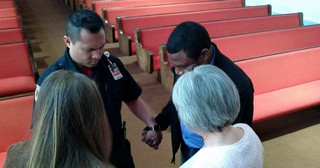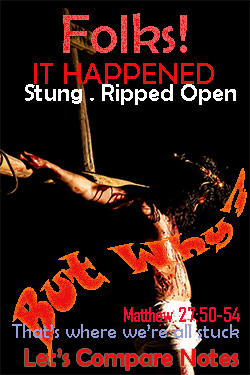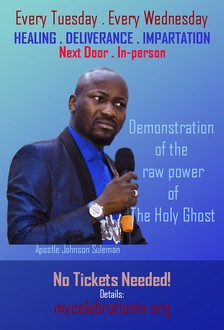Loving Drug Addicts In Evangelical Ministries
Rehabilitating the Sick Can be Messy
We do not understand the complexities in the background history of everyone in church and these complexities influence people’s decisions that may include criminal outcomes at the poor extreme. Naturally, it is difficult to watch people run head-long into depression, and maybe, death when help is not far away. Yet, providing that help requires the patience to learn the deeper heart issues. The motivation provoking the superficial drug-addiction physical response that we notice.
Should Your Church Help?

Your friend invited you to church. You went with your kids for the first time, and they loved it. You have not been to church in a long time. In any case, you were never raised to care about going to church and you don’t truly understand what goes in on there. In addition, with all the hype in the media you have your own suspicions about even those go who to church. Nothing really for or against, it simply has never been your thing.
However, when you went with your friend you found out that it’s not about some cathedral with some laws on holy mannerisms that can estrange you form church. To the contrary, this church at least was all about warmth, caring, dancing, and singing and in less than two hours, it was all over. It took you time to take it all in, and your kids want to go back. They met some friends from their schools, and they made new ones from their neighborhood. So, why not, you think, and you make up your mind to go back and give this church idea a closer look.
The church building looks like some warehouse. Big, bold, and unimpressive from the outside, it looks just like a rectangular block dropped in the middle of a field. However, when you get inside, that structure entombs not just the sanctuary, it has many chapels, classrooms for kids allocated by the age grades, play areas, and even a gym in addition to offices dotted around sections of the church. It is modern, its tasteful and it is welcoming.
On your third visit, you happen to come a little bit late, so you had to park the car towards the rear of the building after dropping the kids off in the front lobby. As you walked back, trying to make your way to the main entrance, you noticed that a smoking area had been provided for people. There were people dragging on maybe the last cigarette before the worship service commences. Huh, that’s unexpected, and how does the church work with that idea, you wonder in your mind? Could it be some recovery program to wean them off their habits or could it be that such habits are tolerated? How will my kids have interpreted this scene if they saw it?
I have started feeling a sense of gratitude to my friend who invited me back to church. Not that I had a great opportunity to know much about church while I was young, but I did join friends occasionally in those days when there was some fun going there. My children and I are just beginning to feel the warmth and the welcome, so, I never thought about the personalities of the individuals that I have had to mingle with.

It jolted me to remember that the church is like a rehabilitation center for everyone irrespective of their personal moral challenges. This makes me to remember that the consequences of addiction to alcohol destroyed any opportunity for me to enjoy my youth with my family, including preventing me from access to the love and warmth that a church offers. My parents were addicted to strong drinks and God has helped me through my foster parents to keep my sanity. Now this! How should I handle it? Should this be in church, on a Sunday morning? Challenging.
Issues In Rehabilitating the Sick
Churches that choose to help addicted individuals must do so carefully. The lady in the above story is certainly confused and may not have decided what the best way forward will be. If she leaves church to potentially protect her children before talking to church authorities, it is going to be challenging to get her back into any other Christian gathering. We do not understand the complexities in the background history of everyone in church and these complexities influence people’s decisions that may include criminal outcomes at the poor extreme.
Caring for drug addicts is a ministry because it is not an ad-hoc program idea that one can revisit one a day every week like Bible Study class. The church must think deeply about it, plan the ministry with guidelines and regulations and be ready to commit resources for its work. It is a long-term project that is time consuming. Naturally, it is difficult to watch people run head-long into depression, and maybe, death when help is not far away. Yet, providing that help requires the patience to learn the deeper heart issues. The motivation provoking the superficial drug-addiction physical response that we notice.

Even, when the underlying cause is identified, the challenge of helping them address the addiction is complicated. It requires addressing the underlying problems such as faulty relationships, insecurity and other life stressors. Therefore, an addiction ministry requires the involvement of many volunteers and specialists, education and increasing awareness of fundamental social driving forces of addictive behavior.
There is a need for care to avoid the kind of issues our single-mother above was worried about. Most mega-churches may be able to provide reliable spaces to take care of people who need a little space to work on their behaviors under supervision. Small churches should try to stay away from such major investments. And it is not just about kids running into someone smoking on the premises, or being exposed to potential predators while in church, stuff happens. Items gets stolen, fights break out and people challenge the disciplinary efforts of their supervisors. The scene can be scary if it happens, and legal liabilities may result.
While boundaries and expectations may be set while trying to help drug addicts, we must recognize that these are adults who have been exposed to certain habits. They are yet to totally get out of those behaviors. Addiction is not like an infection that once the proper drugs are applied the ailment disappears. Addiction is a habit, and takes time overcome. It’s a process. It is difficult to determine if someone who appears to be recovering will go into remission sometime. Or when that remission may happen. Therefore, while we are pouring love on them to help them understand their needs, to help them learn self-control and self-discipline, we cannot afford to lower the guard too low on discipline and toughness. It is the way to ensure the effectiveness of their recovery agenda without causing embarrassing incidents.
We have the responsibility to make the church realize that it is part of our cross to minister to those who are in serious need. It is part of the duty of offering just like that much needed cup of water, clothing, shelter, and the friendship of Jesus Christ. Yet, we must not be naïve in counting the costs, and formulating a clear agenda of what we can offer, learn the process, and grow the ministry irrespective of the size of our local assembly.
Value of Proactive Church Planting
I read about a wish of Ed Stetzer, Director of the Billy Graham Center for the churches. He wanted to prioritize the establishment of more churches in small towns, even as they build mega-churches in cities. He noted that these small towns are places where addiction, dead-end jobs, generational family dysfunction and poverty breed cycles of despair in need of some light.

That revelation reminded me of a testimony of one of my friends from Chicago, Illinois. He said that the police approached their pastors’ society to appeal for help in stopping the ever-increasing wave of homicide in a section of Chicago. Not knowing what else they can do; they selected a day during the month to fast and pray in the center of that locality. They did not do anything else except to gather and pray that assigned day in that neighborhood. To his amazement, the police giving them monthly feedbacks noticed that within three months, more than half of the troublemakers left the neighborhood and homicide rates dropped dramatically, and within six months, the entire neighborhood recorded zero homicides, and it has remained the same for the past three years. Trouble chieftains just walked away. No one molested anyone else.
There is a groundswell of opinion supporting the concept that church planting is pivotal for success in the fight against addiction and peer-pressure indoctrination. For example, most people entering recovery programs get the opportunity through church sponsorship. Research also shows that people in most small-town churches had little exposure to a church before. When the church shows them love and truly supports them, the response is commonly warm and welcoming.
Drug addicts may be casualties of failed governments who turn out to be self-destructive, hopeless, and lonely people complicated by a history of jail time. However, the church can take responsibility for their spiritual and personal well-being beyond the grasp of governments by encouraging members to sacrifice their compassion and discomfort by welcoming them not their families. They may also provide a community of support. Experience shows that rehabilitating addicts commonly turn out to be appreciative evangelists of the gospel of Christ.
Irrespective of the size of our local church, there is something we can offer in our local communities to show love to our drug-addicted neighbors. Individuals need to ask their pastors about opportunities available in the church, or through the church within the community or partnerships with government agencies. The need is ever increasing, and as you respond to this call for action, the Lord will strengthen you and your community in the Name of Jesus Christ.
Mission Fields
People Saw It

Comments

Our Facebook page linked directly above is a very vibrant community where various topics get fleshed out. We also engage in discussions on Twitter and our LinkedIn group is growing beyond imaginations. Feel free to post your comments in your favorite format.













